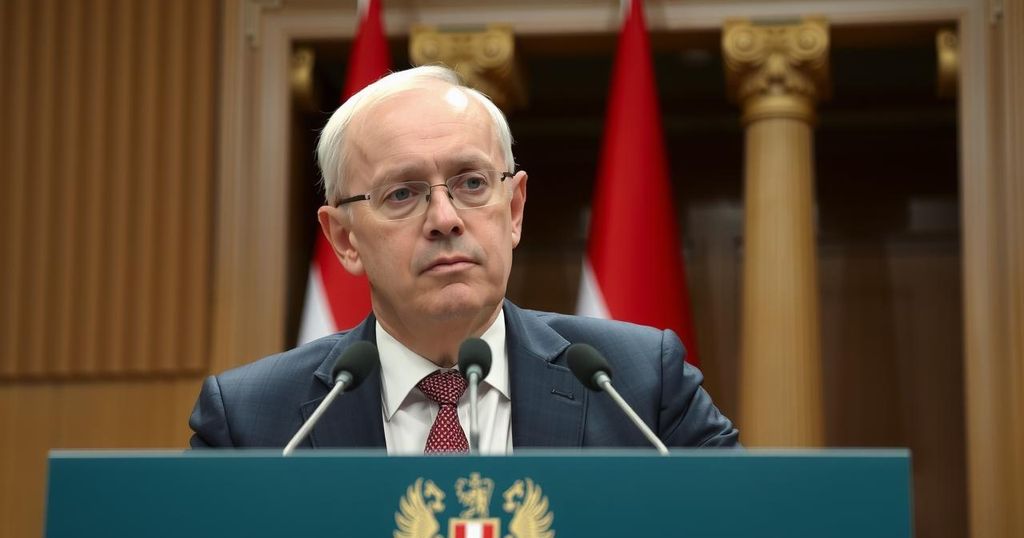Poland’s Presidential Election Scheduled for May 18 Amidst Political Tensions

Poland will hold its presidential election on May 18, with a runoff on June 1 if necessary. Prime Minister Donald Tusk’s cabinet, facing a contentious political environment, may gain an ally with the election of a supportive president. Incumbent President Andrzej Duda, unable to run again, has clashed with the current government. Various candidates, including Warsaw Mayor Rafal Trzaskowski and historian Karol Nawrocki, are competing, marking a critical juncture in Polish politics amidst regional tensions.
On May 18, Poland will conduct its presidential election, as announced by the head of the parliament, Szymon Holownia. Should a second round be necessary, it will be held on June 1. This election holds significant implications for the pro-European Cabinet led by Prime Minister Donald Tusk, particularly during a challenging period marked by the ongoing war in Ukraine and domestic political tensions. The current President, Andrzej Duda, who is prohibited from seeking a third term, has frequently conflicted with Tusk’s government, exemplified by his absence from a key event where European relations were central.
Several candidates have emerged for the presidency. The Civic Coalition has nominated Warsaw’s Mayor, Rafal Trzaskowski, while the right-wing opposition party, Law and Justice, has put forth historian Karol Nawrocki, who has faced controversy due to alleged associations with extremist groups. A lesser-known contender is Slawomir Mentzen of the Konfederacja (Confederation) party. With these dynamics, the election is poised to be a pivotal moment for Polish politics, affecting both domestic and international policies, given the current geopolitical climate. The campaigning officially commences on January 15, allowing candidates adequate time to prepare for what may be a contentious election.
Poland’s presidential powers are somewhat limited, focused primarily on ceremonial duties, while the government oversees local and international policy matters. Historically, the role of the President has been crucial, particularly in matters pertaining to defense and legislative proposals, making the choice of the new president significant for the country’s future trajectory.
As the election approaches, the political landscape remains fraught with tension and uncertainty, underscoring the necessity for strong leadership amidst external challenges and internal dissent.
The forthcoming presidential election in Poland is scheduled for May 18, with a potential runoff on June 1. It comes at a critical juncture, as the nation grapples with significant challenges including the war in Ukraine and political strife. The incumbent President, Andrzej Duda, is unable to run for a third term, thereby opening the presidential race to various candidates amid a political climate that reflects the conflict between the current ruling coalition and the right-wing opposition. This election will shape the future of Poland’s governance, affecting both domestic policies and its relationship with the European Union.
The presidential election in Poland, set for May 18, forecasts a crucial turning point for the nation’s political landscape. With key candidates from diverse backgrounds vying for office amidst international challenges, this election could redefine Poland’s political alliances and impact its role on the European stage. The outcome will be significant as it not only determines the leadership of the country but also influences its future domestic and foreign policy direction.
Original Source: apnews.com








